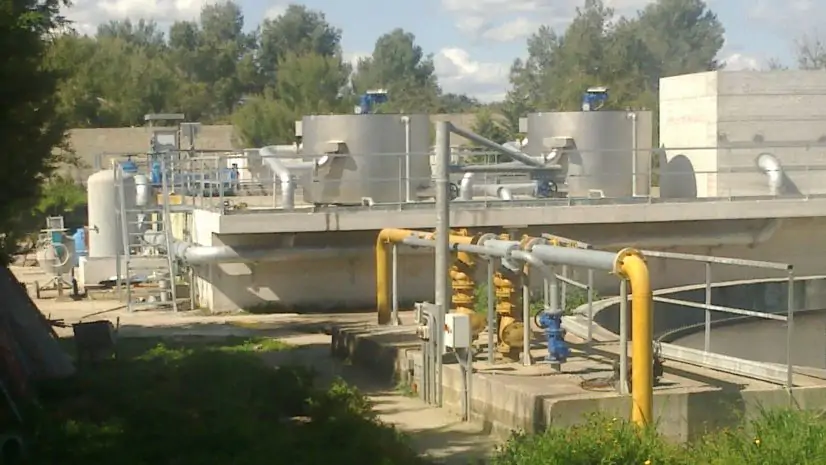Overview of Industrial Wastewater Treatment

1. What is Industrial Wastewater?
The legislator has defined “industrial wastewater” as follows: “water discharged from buildings or plants in which commercial activities or production of goods are carried out; they are different from domestic wastewater and run-off rainwater”. Apart from the mere definition, industrial wastewater can be understood as all industrial process water. On the other hand, it is improper to speak of primary, secondary or tertiary treatments in the industrial sector (such as for municipal wastewater treatment plants).
2. What do Industries Need for the Water Treatment of their Plants?
This is a complex question: there are in fact no “standard” industries and, consequently, there are no process or waste effluents with the same characteristics. Therefore, every industry has tailor-made plant needs.
Here are some elements to consider before selecting the best solution.
- In the first place, it is advisable to opt for different technologies and treatments depending on which industrial sector we refer to: food & beverage, plastics, oil & gas, textile industries have different production processes.
- A second factor to consider is the space for the installation of any new wastewater treatment system. Indeed, many companies must deal with rather small installation areas, while the overall dimensions certainly do not represent a problem for large municipal water treatment plants.
- Finally, the possible evaluation / need for reuse of treated water for process, irrigation or other purpose.
The arguments to be discussed are many: it is always advisable to contact a treatment consultant who can evaluate the different aspects thanks to her or his experience. The aim is process efficiency maximization and operating cost minimization.
Tell us your needs3. Which Water Treatment Technologies for Industries?
In the industrial field, there may be many chances of wastewater treatment.
Among these, we can list some of the most performing.
- Drum filters and disc filters in free fiber cloth, to comply with legal limits for parameters such as total suspended solids (SST) and total phosphorus (PT). These solutions mount cloths with holes of 10 or 5 µm and can handle flow rates from 2 mc / h up to the needs of the company. To enhance the proposal, it is good to use pilot filters for real field tests.
- Lamella pack decanters and oil separators: they can act on the main parameters (such as phosphorus and nitrogen) to be reduced into waste or process water. They can be equipped, as needed, with tanks for chemical preparation or pre-decanter flocculation tanks.
- Rotating biological contactors (“biodiscs”), the biomass develops on the supports, ie the biodiscs, forming a highly effective bacterial layer that develops by “feeding” and breaking down the organic substance. Subsequently, this bacterial layer detaches from the supports themselves and is easily sedimentary in the subsequent part of the treatment.
- Biocombi, compact water purification systems that combine biological treatment and tertiary filtration: the biomass detached from the biodiscs after the first part of the process is stopped by the drum filter (with support made of standard cloth or microfiber).
- Dissolved air flotation systems. The DAF system acts on COD and BOD, assisted or not by chemicals that can increase the ascent rate. The circular shape of the MITA flotation units makes it possible to occupy the least space possible: these solutions can also be positioned at higher heights than the machines positioned on the ground.
- Sand filters, a filtration system with continuous regeneration for the removal of suspended solids (SST).
4. Remote Control and Energy Savings
A feature that many companies are starting to require for their industrial equipment is the possibility of remote management: the aim is to check the operating parameters of the machine from your management system and possibly intervene in a timely manner in case of inadequate operation.
Today even industrial wastewater treatment technologies can use this technical peculiarity. Energy optimization and the reduction of maintenance costs (often already low for some solutions) are some significant advantages.
Last but not least, the possibility of counting on custom solutions: often, companies and individual production lines have waste treatment needs that only an “out of catalog” solution can satisfy.
Ask for InformationResources
Needs of wastewater treatment
Discover the solution for all needsComparing different technologies
Find out all the different technologiesFind out more
All technical articlesOur Newsletter
Sign up for the MITA Water Technologies newsletter: stay up-to-date on systems for municipal and industrial wastewater treatment and filtration.